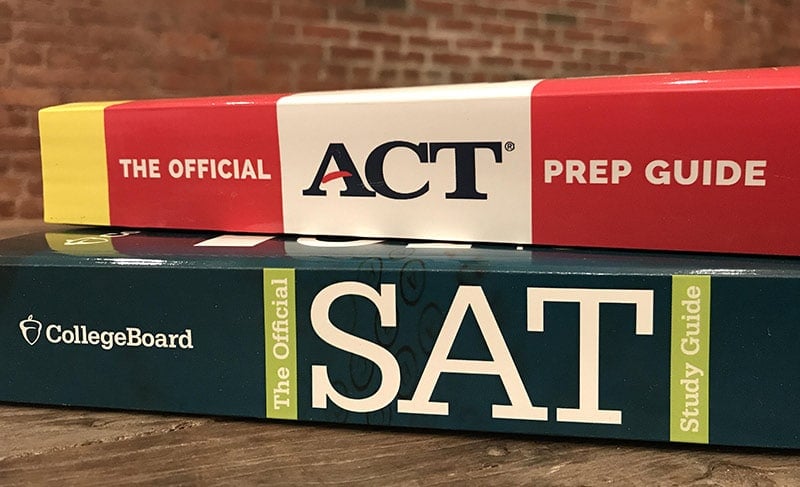
found the image from mylearningspringboard.com
a photo of two text books, one about the ACT and the other about the SAT.
This year at Ballard High School, we are switching from the ACT to the SAT. Let’s establish what the ACT and the SAT are; both of the tests are standardized tests used for college admission in the United States. It assesses a student’s knowledge and skills in English, math, reading, and science. The ACT has a science section, while the SAT focuses on reading and writing in a combined section and includes more advanced math topics.
This year Ballard High School is switching from the ACT to the SAT, and that’s brought on some negative opinions, Switching from the ACT to the digital SAT can have negatives such as having to adapt to the SAT’s math calculator restrictions and its shorter reading passages, the stress of the SAT’s adaptive format, and less emphasis on the science reasoning that the ACT includes, Also the SAT emphasizes algebra, while the ACT includes more geometry and trigonometry, This can be frustrating for students who have been studying for the ACT, having to switch to the SAT could impact some students scores, this switch affects teachers as well, teachers having to possibly change their lessons to better accommodate the SAT rather than the ACT.
Mr. Helvey, an English teacher here at Ballard, although he isn’t teaching for the ACT this year, he has had to teach for the ACT many times, he had opinions on the switch, he said “Aside from the issues with standardized tests not measuring different intelligence types, I would just say that this might have a lot to do with how many students have basically learned how to code break the ACT. So with so many students getting higher and even perfect scores, it stops being an accurate predictor for success at the collegiate level. The SAT is a less familiar format.
Ms. McClanahan, another English teacher here at Ballard who teaches juniors, also had an opinion on the switch; she said, “The switch from the ACT to SAT has certainly added anxiety to both students and teachers. From a teacher’s perspective, I feel as though a switch this quick, and without warning, undoubtedly sets teachers up for failure, thus impeding student learning. Unfortunately, people who are not in classrooms or schools make those decisions. As an English teacher, I know that I will have to work even more hours outside of the classroom to quickly pivot as my content is heavily tested. With that being said, I am hopeful that students don’t adopt a defeatist attitude and also look to pivot towards this new style of testing.”
But this switch mostly affects students, Hannah Long, a junior here at Ballard, said, “I don’t mind the switch, I just wish they would have given us a bit of a heads up because the ACT practice was in the summer and the juniors were all prepping for it, and then they changed it.”
In conclusion, the switch from the ACT to the SAT has been hard on teachers and students alike.